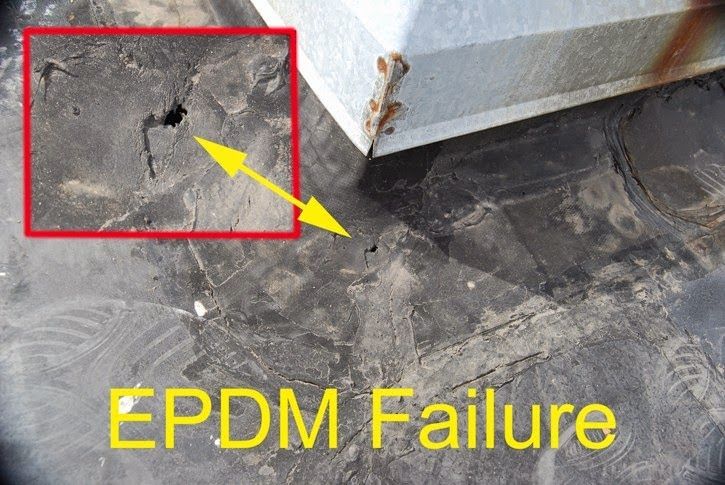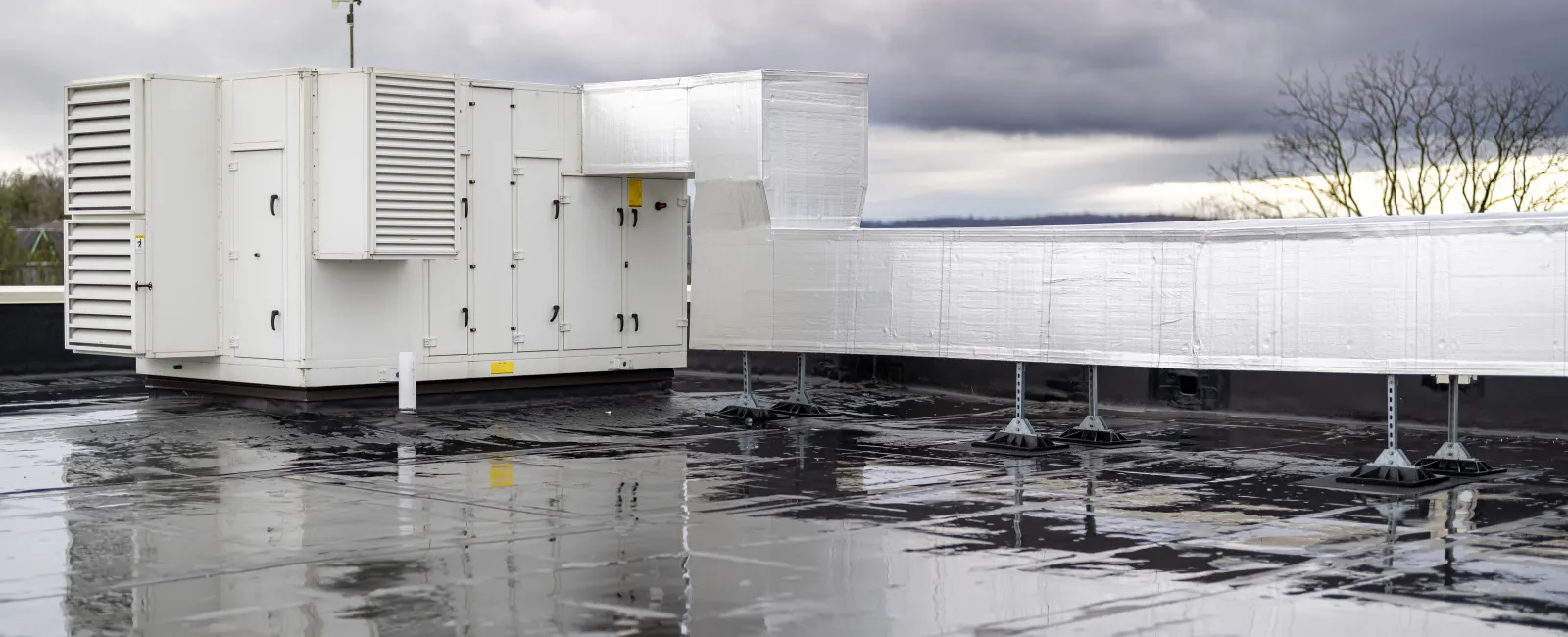EPDM rubber roofing is a popular choice for commercial buildings in Florida. They are durable, watertight, and energy-efficient. However, like all roofing materials, EPDM roofing can be damaged over time, especially in the harsh Florida climate.
Find out more about some common signs of damage to EPDM rubber roofs in Florida and how to prevent it.

Physical Signs of EPDM Roof Damage
● Flashing embrittlement: A condition occurs when the flashing (the metal material used to seal around penetrations in the roof, such as vents and chimneys) becomes brittle and cracked. Embrittlement is a common problem in Florida due to the high heat and humidity.
● Membrane shrinkage: Membrane shrinkage is a condition that occurs when the EPDM rubber membrane shrinks and separates from the roof deck. Shrinkage can happen due to poor installation, improper maintenance, or extreme weather conditions, such as hurricanes.
● Tears and cracks: Tears and cracks in the EPDM rubber membrane can happen due to sharp objects, high winds, or improper installation. They are also a common problem in Florida due to the frequent hail storms.
● Blisters: Blisters are identified as raised areas on the EPDM rubber membrane filled with air or water. The cause is poor installation, improper maintenance, or exposure to extreme heat.
Other Signs of EPDM Roof Damage
In addition to these physical signs of damage, some other things can indicate that your EPDM roofing is failing:
● Leaks: Leaks are the most obvious sign of roof failure. If you see water leaking into your building, it is essential to have your roof inspected by a professional as soon as possible.
● Increased energy bills: An EPDM roof that is failing will not be as energy-efficient as a healthy roof. If you notice that your energy bills have increased, it is possible that your roof is failing and needs to be repaired or replaced.
● Mold and mildew growth: Mold and mildew growth can indicate water leakage into your building. If you see mold or mildew growing on your roof or attic, it is crucial to have your roof inspected by a professional as soon as possible.
Damage Prevention Tips
● Have your roof inspected by a professional at least once a year. Inspections will help to identify any potential problems early on before they cause severe damage.
● Keep your roof clean and free of debris. A clean roof will help to prevent the growth of mold and mildew, and it will also help to protect the EPDM rubber membrane from damage.
● Trim any trees or shrubs that are close to your roof. Trimming shrubs will help to prevent branches from falling on your roof and causing damage.
● Repair any damage to your roof as soon as possible. Roof repairs will help to prevent the damage from getting worse and causing more problems.
Protecting Your EPDM Rubber Roof in Florida
In addition to these general tips, there are also some specific things you can do to protect your EPDM rubber roofing in Florida:
● Apply a UV-resistant coating to your roof. UV coatings will help to protect the EPDM rubber membrane from the sun's harmful UV rays.
● Consider installing a reflective roof coating. A reflective coating will help to reflect sunlight away from your roof, which can help to reduce the amount of heat that your roof absorbs.
● Make sure that your roof is properly ventilated. Proper ventilation will help to prevent moisture from building up on your roof, which can lead to mold and mildew growth.
By following these tips, you can help to ensure that your EPDM rubber roof lasts for many years to come, even in the harsh Florida climate.
If you notice signs of damage to your EPDM roof, it's important to have it fixed before it causes more issues. For a free estimate in Florida, please call 239-908-3525

